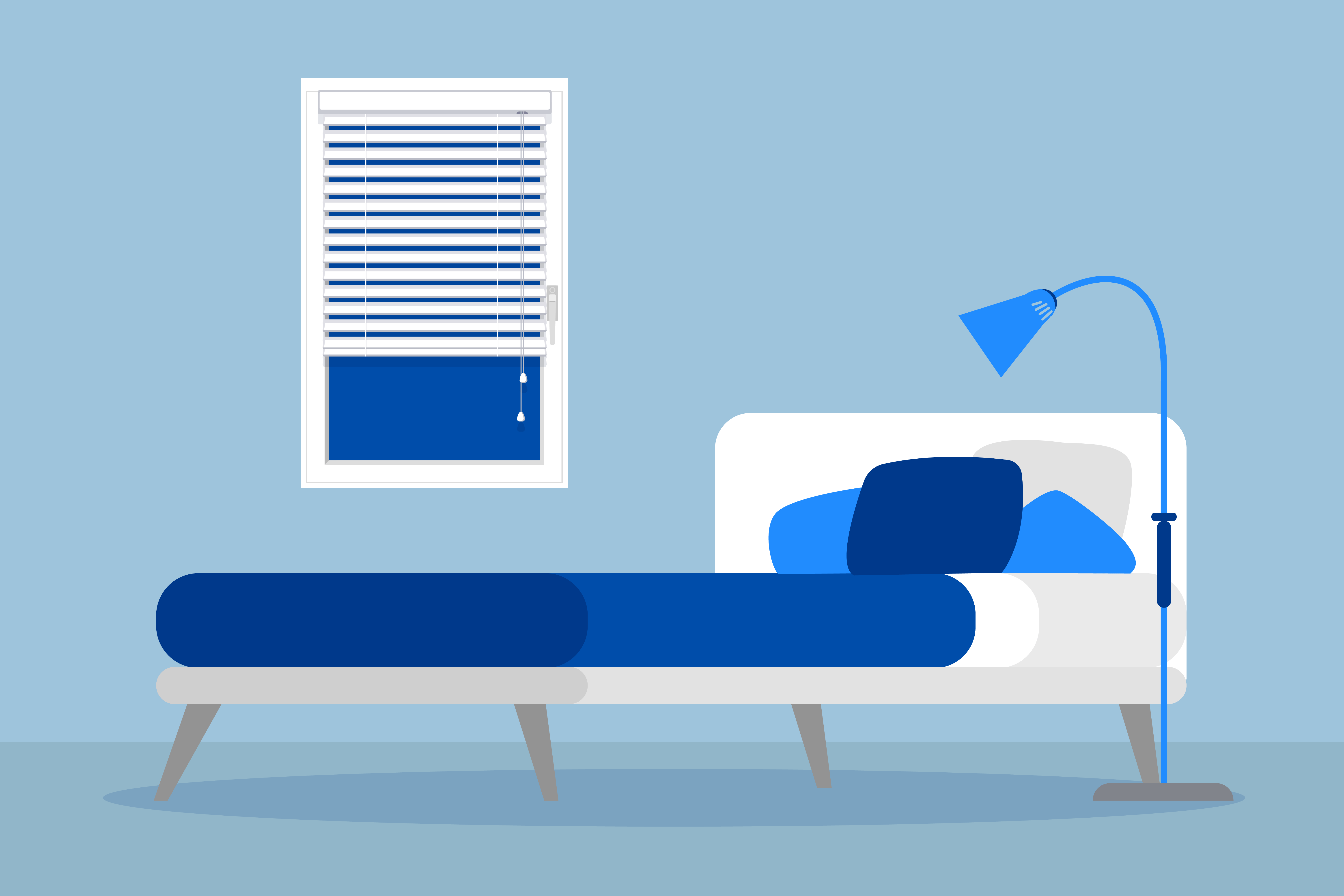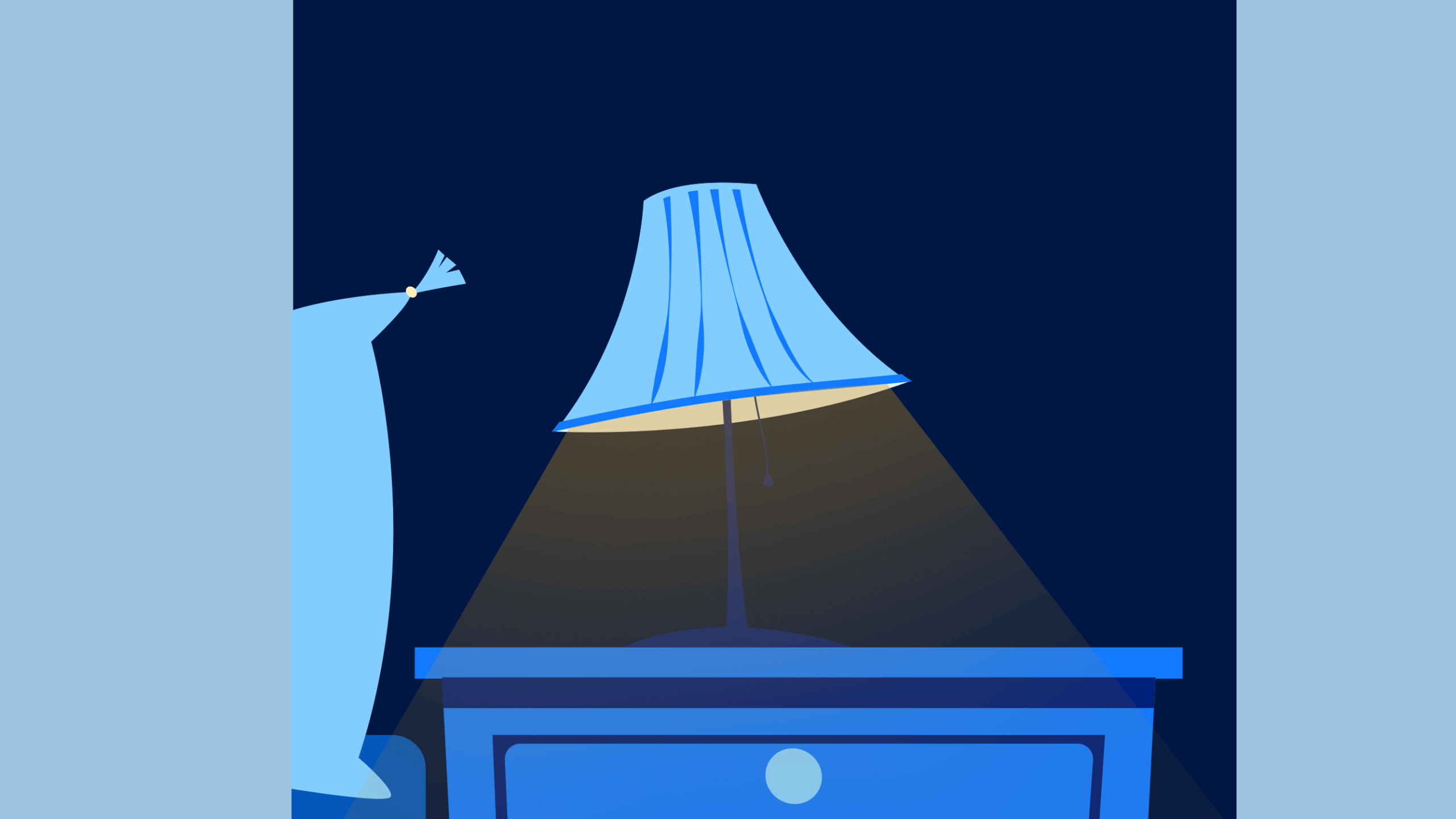Key Takeaways
- Optimize the Bedroom Environment: Clear out clutter and electronics, regulate the room temperature to around 65 degrees Fahrenheit, and keep the room dark at night. These adjustments create a conducive environment for restful sleep and help maintain a healthy sleep cycle.
- Leverage Aromatherapy: Use essential oils such as lavender, chamomile, peppermint, eucalyptus, and valerian to promote relaxation and better sleep. Aromatherapy can effectively soothe the nervous system, induce sleep, and alleviate stress, facilitating a more restful and rejuvenating sleep experience.
- Choose Quality Bedding and Furniture: Invest in a comfortable mattress and pillows that provide adequate support for your body. Additionally, select bedding that suits your preferences for firmness, loft, and temperature regulation. A well-designed and clutter-free bedroom, complemented by suitable decoration pieces, can significantly enhance the overall sleep environment.
Your bedroom environment’s effect on sleep quality cannot be overstated. Ideally, your bedroom should be a haven for comfortable, rejuvenating sleep. However, bedrooms are typically messy, loud, and bright— a sleep environment that works against sound sleep.
So to better your sleep, you may need to work on making your bedroom the ultimate sleep sanctuary. Some may find it’s enough to clear out distracting electronics, while others may need plants, essential oils, or soothing colors to help them fall asleep at night.
Regulate the Room Temperature
The temperature of your bedroom may significantly impact the quality of your sleep. Having a cool room temperature is one of the essential variables for a good night's sleep, Verified Source Johns Hopkins Medicine University focused on medical research that produces thoroughly reviewed health articles. View source but is most comfortable can vary slightly.
The ideal bedroom temperature for a night of good sleep is around 65 degrees Fahrenheit (18.3 degrees Celsius). This varies by person, but most doctors recommend having the thermostat set between 60 and 67 degrees Fahrenheit (15.6 to 19.4 degrees Celsius) for the most pleasant sleep.
In the evening, our bodies are programmed to experience a little drop in core temperature. Turning down the thermostat at night may aid in temperature management and signal your body that it is time to sleep. There are other tricks for cooling down a room if you want to minimize air conditioning costs.
Get Rid of All the Clutter
The bedroom is not your gym, office, or playroom. To begin associating it with sleep and as the first step of a complete bedroom makeover, you must eliminate all potential distractions. Put the treadmill in another room, get rid of the computer and work desk, and, most crucially (and most difficult), get rid of the television. Try to eliminate anything with a screen.
Why is a tech-free bedroom necessary? Because using your bedroom for other purposes merely leads to your brain connecting the room with other things. For example, you may associate the area with busy work if your bedroom is also your workplace. You might find your mind occupied and even concerned about work when you try to fall asleep.
Keep Your Room Dark at Night
We’ve already spoken about how artificial light mimics the impact of natural light in promoting wakefulness. One of the best things you can do for your sleep is to turn off all lights. This involves not leaving a lamp, turning off any nightlights, and installing heavy drapes or blackout shades to block outside light.
“Light is one of the strongest ‘time signals’ for our clock,” explains Dr. Nayantara Santhi. “Light receptors in the eye—rods, cones and melanopsin-expressing retinal ganglion cells, play a key role in this signaling. For most of us, our daily light exposure includes predominantly indoor artificial light, which is constantly available.”
“This is cause for concern, because of the effects of light on our circadian clock and the health consequences of disruption of circadian rhythmicity and associated sleep deprivation through exposure to artificial light. Making sure we have enough outdoor natural light during the day and limiting artificial light after dark can go a long way in reducing circadian disturbances and accompanying sleep disruption.”
There are many benefits to falling asleep in a darker room. This may be one of the most important aspects of a better sleep environment.
Helps You Fall Asleep
Darkness makes it easier to fall asleep. Darkness helps boost the increase in melatonin, a hormone linked to a healthy sleep cycle. Darkness also increases calm, which aids sleep. Next time you go to bed, turn off all lights to sleep easily.
Improves Health
Many may be surprised, but it’s true. Darkness improves health and well-being. Studies reveal that Verified Source National Library of Medicine (NIH) World’s largest medical library, making biomedical data and information more accessible. View source sleeping in light can increase body weight by 50%.
Light slows metabolism, say, researchers. Your body can’t turn fat into energy. Weight gain is more likely in people who are sleepers in bright rooms. Darker rooms stimulate a quick metabolism, which helps you maintain a healthy weight. See also our guide to good sleep and healthy weight.
Lowers Diabetes Risk
According to Northwestern University research, falling asleep in darkness can lessen your risk of type 2 diabetes. The study indicated that light sleep increases insulin resistance and diabetes risk. The research advocated sleeping in a darker environment to minimize illness risk.
Improves Mindset
Darkness improves mental attention. It lets you sleep undisturbed for at least 6 hours, enhancing mental focus and alertness. Each sleep cycle lasts 90 minutes, say specialists. All sleep cycles require at least six hours. Sleeping in a darker sleep environment completes all sleep cycles, enhancing mental attention. Creating an optimal sleep environment reduces your risk of sadness, anxiety, and stress.
Regulates Melatonin
Melatonin is a vital hormone. This hormone is generated by the pineal gland at night and helps promote restful sleep. High-quality, soothing sleep requires enough melatonin. Melatonin is generated best in the dark, according to studies.
Light can delay or inhibit melatonin synthesis, disrupting your sleep cycle. Melatonin helps regulate hormones that impact a woman’s menstrual cycle. According to studies, Verified Source National Library of Medicine (NIH) World’s largest medical library, making biomedical data and information more accessible. View source normal melatonin synthesis reduces obesity, diabetes, and sarcopenia risk.
Eye Relief
Sleeping in the dark provides your eyes with much-needed rest. Darkness protects and rests the eyes. Dark room sleepers are less prone to develop myopia.
Prevents Aging
Want to mature gracefully? If so, pursue your beauty sleep in the darkest room possible. Limiting exposure to light helps boost cellular renewal, which keeps skin fresh. In a resting state, cellular regeneration is accelerated, which slows aging.
Move Electronics Out Before You Fall Asleep
If you refuse to take your phone from the room, one helpful technique is to turn it over, screen-side down, before going to bed. Many phones light up when an app sends an incoming text, email, or push notification, which may distract or even wake you awake. By rotating your phone over at night, you may eliminate unwanted light.
Your phone’s blue light interferes with your brain’s impulses, telling it that it’s still time to be up and aware. Looking straight into the light of your phone confuses your brain into believing it’s still midday, making it difficult to fall asleep and, as a result, less attentive the next day. What you do to unwind at the end of the day is keeping you awake longer.
While the impacts may not be immediately apparent, the long-term consequences should be enough cause to break the habit. Aside from feeling tired after a night of little sleep, sleep deprivation can have various long-term implications.
Another idea is to use your devices’ blue light blocker glasses and blue light filters. However, even with these filters, it is best to avoid devices with a screen for 30 minutes to an hour before bedtime. Blue light can affect how well you sleep even if you have recently absorbed blue spectrum light before heading off to rest.
Get Rid of Your Television
Speaking of getting rid of electronics, that includes the biggest one- your television. Getting rid of television benefits in a variety of ways. Because it’s in the room, it’s too simple to view it before bedtime. Engaging programs can keep your mind awake longer by engrossing you in the plot.
TVs also produce blue light, which might cause the body’s sleep clock to slow down. Such blue light is related to being awake. When there is light, your system makes it more difficult to fall asleep.
Manage Noise Properly for Sleep
Your brain processes noises while you sleep. That’s why parents wake fast when their kid screams or your partner’s snoring keeps you up. Nighttime noises might be confusing. Some noises are disturbing, while others are sleep-inducing.
Quieter bedrooms make hearing more sensitive. As with a noisy bedroom, a too-quiet one might disrupt sleep. Many find that sleeping with a fan on is sooting for this reason.
Try some earplugs to cut down on annoying sounds. Foam, silicone, and flanged earplugs exist. Try different earplugs until you find the right fit. 32-decibel earplugs are recommended. This will filter one-third of external noise but let you hear a baby screaming or a smoke alarm.
Choose a better alarm clock, too. Most individuals need a wake-up call. If you need an alarm, think beyond the old-school beep. You may choose from many alarm sounds. Light signals or vibrations might also wake you up. Find the most effective, least jarring alert.
Use Aromatherapy to Relax
Anyone who has experienced insomnia will tell you there is no alternative to a good night’s sleep. With all of the stresses of contemporary life, getting enough hours of quality sleep can be tough to come by. When you are stressed—whether your blood pressure is high, there are issues at work or home—the body reacts by resisting the ability to relax.
Thankfully natural ways can frequently aid sleep. When used correctly and appropriately, some essential oils Verified Source National Library of Medicine (NIH) World’s largest medical library, making biomedical data and information more accessible. View source can provide scents that will put you right to sleep!
A few drops are generally all required, and methods of administration include using air diffusers, even steam from pots of boiling water, or just rubbing straight into the skin. Here are the best essential oils for helping you sleep better!
Lavender Oil
Lavender works by soothing the nervous system and facilitating slow-wave slumber, allowing you to sleep longer and better. So, while lavender oil Verified Source Medline Plus Online resource offered by the National Library of Medicine and part of the National Institutes of Health. View source may appear to be something that smells lovely, it may carry a reasonably potent (and well-researched) Verified Source National Library of Medicine (NIH) World’s largest medical library, making biomedical data and information more accessible. View source punch when it comes to assisting you in sleeping better.
Chamomile Oil
The relaxing effects of chamomile oil Verified Source Medline Plus Online resource offered by the National Library of Medicine and part of the National Institutes of Health. View source and its advantages in promoting sleep are more broad than particular. The immediate benefits of this oil on the body’s rhythms and temperature are negligible.
Still, when diffused in the air, the gentle flowery perfume has a calming and relaxing influence on the mind. The scent of its flowers is also why chamomile is one of the best plants for the bedroom.
Peppermint Oil
Peppermint is said to have anti-inflammatory effects. People usually use the oil to relieve discomfort, bu peppermint oil may also help with anxiety and stress relief.
In a 2020 research study, 105 participants with cardiac difficulties were given peppermint essential oil, lavender essential oil, and aromatic distilled water to manage their sleep quality.
The study discovered that both essential oils increased reported sleep quality compared to the control. However, there was no change in sleep quality between the peppermint and lavender essential oil conditions. This shows that both essential oils have the same influence on sleep quality.
Eucalyptus Oil
Eucalyptus oil Verified Source Medline Plus Online resource offered by the National Library of Medicine and part of the National Institutes of Health. View source has naturally calming scents and the powerful sinus-opening properties. Suppose you have trouble sleeping because of excessive phlegm. In that case, eucalyptus oil has the dual advantage of calming you while also improving your congestion, allowing you to enjoy a decent night’s sleep.As a side note, eucalyptus fibers are the primary ingredient in Tencel sheets.
Valerian Oil
Valerian oil is recognized for its relaxing effects. Valerian is utilized in many bedtime teas for sleep for just this purpose. Valerian oil, like marjoram, can guarantee that you not only sleep but sleep well.
Have a Quality Mattress, Pillows, and Bedding
Quick Guide: A 30-Second Summary
Best Mattress
Amerisleep AS3
Best Pillow
Amerisleep Comfort Classic Pillow
Best Sheets
Amerisleep Bamboo Sheets
Best Blanket
Amerisleep Allseasons Blanket
Best Comforter
Amerisleep Recover+ Comforter
If you wake up stiff, numb, or exhausted, or if you slept better on a hotel bed, it may be time to change your mattress and pillows. Most mattresses are supposed to last up to ten years, but if yours has bumps, snags, tears, or holes, you should consider changing it. Similarly, if you repeatedly fluff your pillow during the night, it’s time to replace it.
You spend one-third of your life sleeping, so while the initial price of new mattresses may seem intimidating, purchasing the finest that you can afford may be worthwhile. Choosing a mattress is mostly a matter of personal taste; whether you want a firm, bouncy, or buoyant bed, there is a mattress to suit your demands.
There are many mattresses available to accommodate different sleep demands, such as changeable stiffness, preferred sleep positions, interruptions from a tossing/turning spouse, or even covered if you are allergic to specific textiles or dust mites.
Mattress
Sleeping on a comfortable mattress enhances relaxation, appropriate spinal alignment, and excellent sleep. Conversely, the wrong sleeping surface can leave you waking up sore, stiff, and tired.
Pillows
Pillows assist in keeping your spine upright as you sleep. Headaches and stress in the shoulders, back, and neck can result from misalignment caused by insufficient head and neck support. In your chosen sleeping position, your pillow should give adequate support.
Comforters and Sheets
Select your bedding, such as sheets and comforters, with care. Firmness, loft (thickness), and durability are all essential factors to consider when choosing the best sheets and other bedding. The finest bedding for you may depend on whether you want a crisp or smooth hand feel, if you need hypoallergenic sheets, and how hot your body temperature is at night.
A clean and clutter-free bedroom is also essential for ensuring a healthy sleep. Vacuuming your carpet and washing your bedding regularly can help minimize the prevalence of dust mites, which are little arthropods that cause allergies. Just follow the washing and drying recommendations on your bedding’s care label to avoid damage or excessive shrinking.
Decoration Pieces
While throw pillows, hanging canopies, and bed skirts aren’t typically necessary for a good night’s rest, they can make your bedroom feel more like it’s your space.
Keep in mind the color scheme of the rest of your bedroom, so that your accent pieces complement the room instead of clashing with the design. And while it can be fun to mix and match patterns on your throw pillows, extra blankets, and such, make sure the look isn’t too stimulating.
Frequently Asked Questions
What should you not keep in your bedroom?
If you can, it’s best to aim for a tech-free bedroom, free of distracting gadgets like TV, laptops and computers, and tablets. Some may need to keep their cellphone in the bedroom for sudden calls or as an alarm clock, but if you can do without it we recommend leaving it outside the bedroom. It’s also best to keep what miscellaneous clutter you can out of the bedroom
Why you shouldn’t have your phone in your bedroom?
It’s often recommended to keep your cell phone out of the bedroom as it can be just as distracting as a computer or TV. If you do want to keep it in your bedroom for emergency calls or to serve as an alarm clock, try to keep it a few feet away from the bed so you’re not tempted to reach out for it. If you’re only using it as an alarm, you can also keep it in airplane mode to ensure you’re not woken by a sudden notification.
Can I put my bed in front of a window?
Traditional designers might argue against a bed by the window. Placing a bed by the window can increase exposure to noise and light, though some enjoy waking up to natural light.
Temperature is also more likely to vary when you’re sleeping by the window. Lastly, it can be more difficult to feel like your bedroom is a private retreat if people can see you sleeping or relaxing in bed.
Where should you place an alarm clock in your bedroom?
While many keep an alarm clock on their bedside table, this may not be the best place. If it’s right by your bed, it’s all too easy to reach over and hit snooze in the morning, which can make it harder to get up and more difficult to wake up. Instead, it may be best to have your alarm clock a few feet away, so you have to move out of bed to shut it off in the morning.
How can I make my bedroom look nice?
Taking a few minutes every day to follow the simple steps of making your bed can do wonders for how it looks. Your routine can be as simple as straightening the covers and fluffing the pillows. Doing so can give you a boost of productivity in the morning, helping you feel more ready to tackle the day.
As a final step, you can try different ways of arranging your pillows on the bed. Some sleepers may layer them in twos or threes, while others may prefer the clean look of only head pillows.
What is the Best Bedroom Environment for Me?
We all have various tolerances and preferences, so pay attention to your body and record what works best. You may not need to implement every adjustment advised by sleep hygiene specialists and perform a complete bedroom makeover. Instead, the essential takeaways are prioritizing rest in your routine and creating a bedroom that prioritizes sleep above all else.
About the author
Eric Ridenour is a health and wellness writer with a strong focus on sleep and nutrition. With a background in health science and psychology, Eric has a deep understanding of the connection between sleep and overall well-being. His expertise has been sought by various businesses and individuals, and his work has been featured in reputable publications such as Thrive Global, Drug Report, and Authority Magazine. Eric's commitment to promoting better sleep and comprehensive wellness is evident in his writing and consultations. He is a published author working on his second book.
View all posts





